This is the web page of the Artificial Intelligence track of the ABCP 2022 Annual Conference, to be held on Friday 1st and Saturday 2nd July 2022.
PROGRAMME
Day 1: Friday 1st July 2022
(In-person: 118/119 / Virtual: Zoom link OR Webinar ID = 849 8050 0711 + Passcode = 619292)
| 01:30-02:30pm | Keynote 1, Chaired by Professor Yaochu Jin, University of Surrey, UK; Bielefeld University, Germany |
| 01:30pm-02:30pm | Development Directions of Industrial Intelligence (工业智能发展方向) Professor Tianyou Chai (柴天佑), Northeastern University, China show more/less
Abstract: In this talk, the role of industrial automation and information technology in the industrial revolutions is analyzed, as well as the current status and main problems in automation and information for manufacturing enterprise. The connotation of industrial intelligence and the challenges in realizing industrial intelligence are put forward. Based on the analysis and application cases of industrial internet and industrial artificial intelligence, the technical basis of industrial intelligence is presented. Then, the research directions, ideas and methods of industrial intelligence are proposed. 摘要: 本报告分析了工业自动化与信息化技术在工业革命中的作用以及制造企业自动化与信息化现状和存在的主要问题,提出了工业智能的内涵和实现工业智能面临的挑战科学问题,通过对工业互联网和工业人工智能的分析和应用案例,提出了工业智能的技术基础,在此基础上提出了工业智能的研究方向和研究思路与方法。 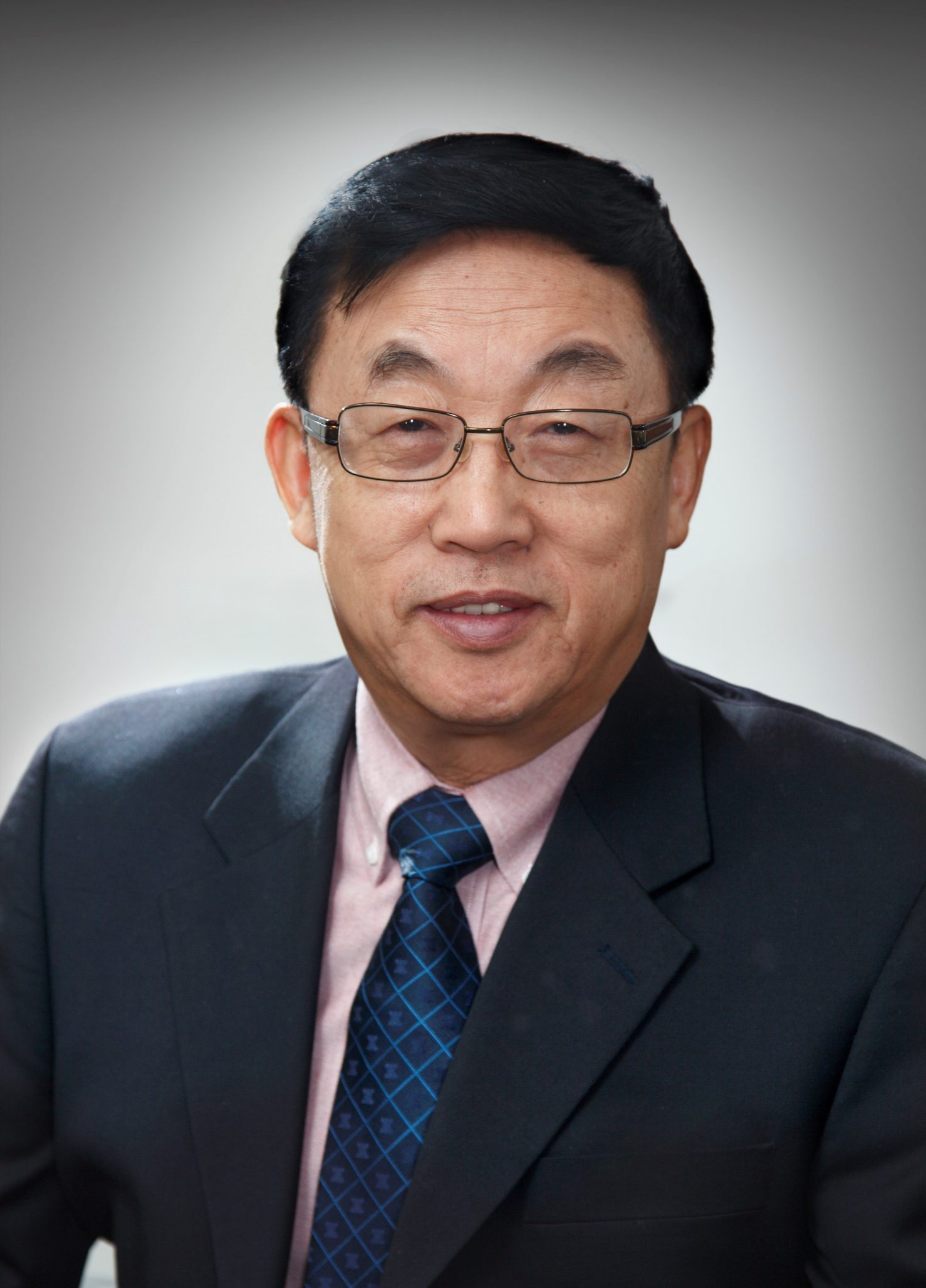 Professor Chai Tianyou Bio: Tianyou Chai received the Ph.D. degree in control theory and engineering in 1985 from Northeastern University, Shenyang, China, where he became a Professor in 1988. He is the founder and Director of the Center of Automation, which became a National Engineering and Technology Research Center and a State Key Laboratory. He is a member of Chinese Academy of Engineering, IFAC Fellow and IEEE Fellow. He has served as director of Department of Information Science of National Natural Science Foundation of China from 2010 to 2018. His current research interests include modeling, control, optimization and integrated automation of complex industrial processes. He has published 297 peer reviewed international journal papers. His paper titled Hybrid intelligent control for optimal operation of shaft furnace roasting process was selected as one of three best papers for the Control Engineering Practice Paper Prize for 2011-2013. He has developed control technologies with applications to various industrial processes. For his contributions, he has won 5 prestigious awards of National Natural Science, National Science and Technology Progress and National Technological Innovation, the 2007 Industry Award for Excellence in Transitional Control Research from IEEE Multiple-conference on Systems and Control, and the 2017 Wook Hyun Kwon Education Award from Asian Control Association. |
| 02:30-03:30pm | Keynote 2, Chaired by Professor Huiru Zheng, Ulster University, UK |
| 02:30-03:30pm | Towards Soundscape Indices: A Perspective Using AI Professor Jian Kang (康健), UCL Institute for Environmental Design and Engineering, University College London (UCL), UK show more/less
Abstract: Environmental noise is often the main cause of environmental distress in terms of the number of complaints received. The conventional approach of reducing ‘sound level’ does not always deliver the required improvements in quality of life. Soundscape, defined by the ISO as the ‘acoustic environment as perceived or experienced and/or understood by a person or people, in context’, promotes a holistic approach, regarding sounds as ‘resources’ rather than just ‘wastes’. Consequently, it is vital to establish “soundscape indices” (SSID). By taking multiple factors, including psychological, (psycho)acoustical, neural and physiological, and contextual factors, into account, SSID will adequately reflect levels of human comfort. This talk will explore the application of ANN for the establishment of SSID, based on large scale subjective survey and objective measurement databases. It is expected that this AI case study would trigger some discussions on AI applications in different fields. Professor Jian Kang Bio: Professor Jian Kang, FREng (英国皇家工程院院士), MAE (欧洲科学院院士), FIOA, FASA, FIIAV, CEng, has been a full professor since 2003. He is President-Elect of the International Institute of Acoustics and Vibration (IIAV), and he also chairs the European Acoustics Association Technical Committee for Noise, and the EU COST Action on Soundscape of European Cities and Landscapes. He was awarded IOA Tyndall Medal 2008 and Peter Lord Award 2014; NAS Lifetime Achievement Award 2014; and CIBSE Napier Shaw Bronze Medal 2013. He is Fellow of Royal Academy of Engineering, and a Member of Academia Europaea -The Academy of Europe. Jian Kang, Professor of Acoustics and Soundscape, has worked in the field for 35+ years, with 80+ research projects, 800+ publications, 90+ engineering/consultancy projects, and 20+ patents. His work on acoustic theories, design guidance and products has brought major improvements to the noise control in underground stations/tunnels and soundscape design in urban areas. He is recipient of the prestigious Advanced ERC Grant Award, currently working internationally on developing Soundscape Indices. |
| 03:30-04:30pm | Keynote 3, Chaired by Professor Yaochu Jin, University of Surrey, UK; Bielefeld University, Germany |
| 03:30-04:30pm | People-Centred AI Professor Adrian Hilton, University of Surrey, UK show more/less
Abstract: This talk will introduce the research programme of the Surrey Institute for People-Centred which aims to put people at the heart of future AI driven solutions to ensure that they are of benefit to individuals and society. The Institute brings together expertise in AI and application domains including health, social and engineering sciences to realise the next generation of AI technologies. The talk will showcase active research projects which are bringing together AI and domain expertise building on leading expertise in areas such as audio and visual AI to realise future solutions in healthcare, education, entertainment and business. 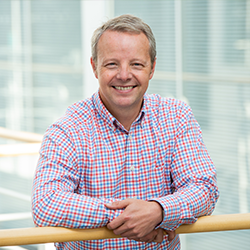 Professor Adrian Hilton Bio: Adrian Hilton is Professor of Computer Vision, founding Director of the Surrey Institute for People-Centred AI and Director of the Centre for Vision, Speech and Signal Processing at the University of Surrey. The focus of his research is Perceptual AI enabling machines to understand and interact with the world through seeing and hearing. This combines the fields of computer vision and machine learning to develop new methods for reconstruction, modelling and understanding natural scenes from video and audio. Since joining CVSSP in 1992, he has led research in 3D and 4D computer vision exploited in entertainment manufacture and healthcare. He has received two EU IST Prizes, a DTI Manufacturing Industry Achievement Award, and a Computer Graphics World Innovation award; eight best paper awards in international journals and conferences; and co-founded the European Conference on Visual Media Production. He held a Royal Society Wolfson Research Merit Award (2013–18) and a Royal Society Industry Fellowship (2008–11) with Framestore to investigate multi-view and 3D video in film production. He was elected Fellow of the Royal Academy of Engineering in 2019 and Fellow of the Institute of Engineering and Technology 2012 and received the IET Achievement Medal in 2018. |
| 04:30-04:40pm | Break |
| 04:40-05:00pm | Introductory Session, Chaired by Dr Hua Zhong, Nottingham Trent University, UK |
| 04:40-04:45pm | A Brief Introduction to Asiainfo Data Ms Danting Shen, President, Beijing AsiaInfo Data Co. Ltd., China show more/less
Abstract: To be added.  Ms Danting Shen Bio: To be added. |
| 04:45-04:50pm | An Introduction to Yangtze Delta Region of Tsinghua University Ms Qianlei Yao, Yangtze Delta Region of Tsinghua University, Zhejiang, China show more/less
Abstract: To be added.  Ms Qianlei Yao Bio: To be added. |
| 05:00-06:00pm | Regular Session, Chaired by Professor Huiyu Zhou, University of Leicester, UK |
| 05:00-05:15pm | Covariance Controlled Adaptive Langevin Thermostat for Large-Scale Bayesian Sampling Dr Xiaocheng Shang, University of Birmingham, UK show more/less
Abstract: To be added. 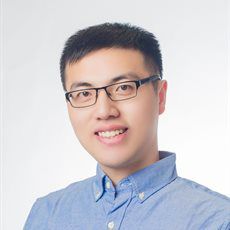 Dr Xiaocheng Shang Bio: To be added. |
| 05:15-05:30pm | Classification in Dynamic Data Streams with S Scarcity of Labels Professor Shengxiang Yang, De Montfort University, UK show more/less
Abstract: To be added. 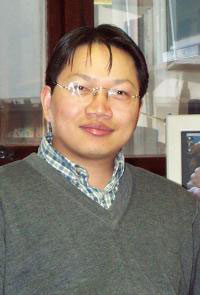 Professor Shengxiang Yang Bio: To be added. |
| 05:30-05:45pm | Perspective View of Autonomous Control under Uncertain Environment: Dual Control Vs Reinforcement Learning Professor Wen-Hua Chen, Loughborough University, UK show more/less
Abstract: To be added.  Professor Wen-Hua Chen Bio: To be added. |
| 05:45-06:00pm | Uncertainty Quantification and Propagation with Optimal Transport and Differentiable Bayesian Filters Dr Yunpeng Li, University of Surrey, UK show more/less
Abstract: To be added. 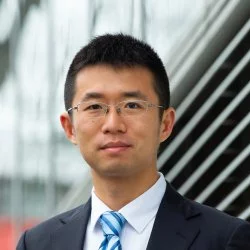 Dr Yunpeng Li Bio: To be added. |
Day 2: Saturday 2nd July 2022
(Virtual: Zoom link OR Webinar ID = 827 7611 8267 + Passcode = 957579)
| 01:30-02:30pm | Keynote 4, Chaired by Professor Huiru Zheng, Ulster University, UK |
| 01:30-02:30pm | AI in Medical and Biological Data Applications Professor Yi Pan, Shenzhen Institute of Advanced Technologies, China; Georgia State University, USA show more/less
Abstract: Artificial Intelligence (AI) is the science of mimicking human intelligences and behaviors. Machine Learning (ML), a subset of AI, trains a machine how to use algorithms or statistics to find hidden insights and learn automatically from data. Deep learning (DL) is one of machine learning methods where we use deep neural networks with advanced algorithms such as auto-encoding or convolution to recognize patterns in data. AI has become very successful recently due to the availability of huge data and powerful supercomputers. Many applications such as speech and face recognition, image classification, natural language processing, bioinformatics, health informatics such as disease prediction and detection suddenly took great leaps due to the advance of AI. Although various AI architectures and novel algorithms have been invented for many bio and health applications, better explainability, increasing prediction accuracy and speeding up the training process are still challenging tasks among others. In this talk, I will outline recent developments in AI research for bioinformatics and health informatics. The topics discussed include proposing more effective architectures, intelligently freezing layers, gradient amplification, effectively handling high dimensional data, designing encoding schemes, mathematical proofs, optimization of hyper-parameters, effective use of prior knowledge, embedding logic and reasoning during training, result explanation and hardware support. These challenges create a huge number of opportunities for people in both computer science and health care. In this talk, some of our solutions and preliminary results in these areas will be presented and future research directions will also be identified. 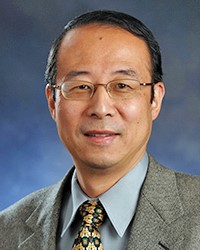 Professor Yi Pan Bio: Dr Yi Pan is currently a Chair Professor and the Dean of Faculty of Computer Science and Control Engineering at Shenzhen Institute of Advanced Technology, Chinese Academy of Sciences, China and a Regents’ Professor Emeritus at Georgia State University, USA. He served as Chair of Computer Science Department at Georgia State University from 2005 to 2020. He has also served as an Interim Associate Dean and Chair of Biology Department during 2013-2017. Dr Pan joined Georgia State University in 2000, was promoted to full professor in 2004, named a Distinguished University Professor in 2013 and designated a Regents’ Professor (the highest recognition given to a faculty member by the University System of Georgia) in 2015. Dr Pan received his B.Eng. and M.Eng. degrees in computer engineering from Tsinghua University, China, in 1982 and 1984, respectively, and his Ph.D. degree in computer science from the University of Pittsburgh, USA, in 1991. His profile has been featured as a distinguished alumnus in both Tsinghua Alumni Newsletter and University of Pittsburgh CS Alumni Newsletter. Dr Pan’s current research interests mainly include bioinformatics and health informatics using big data analytics, cloud computing, and machine learning technologies. Dr Pan has published more than 450 papers including over 250 journal papers with more than 100 papers published in IEEE/ACM Transactions/Journals. In addition, he has edited/authored 43 books. His work has been cited more than 18500 times based on Google Scholar and his current h-index is 88. Dr Pan has served as an editor-in-chief or editorial board member for 20 journals including 7 IEEE Transactions. Currently, he is serving as an Editor-in-Chief of Big Data Mining and Analytics, an Associate Editor-in-Chief of Journal of Computer Science and Technology, Chinese Journal of Electronics, and IEEE/ACM Transactions on Computational Biology and Bioinformatics. He is the recipient of many awards including one IEEE Transactions Best Paper Award, five IEEE and other international conference or journal Best Paper Awards, 4 IBM Faculty Awards, 2 JSPS Senior Invitation Fellowships, IEEE BIBE Outstanding Achievement Award, IEEE Outstanding Leadership Award, NSF Research Opportunity Award, and AFOSR Summer Faculty Research Fellowship. He has organized numerous international conferences and delivered keynote speeches at over 70 international conferences around the world. Dr Pan is a Member of the Academy of the United Nations Sciences and Technology Organization, Foreign Member of Ukrainian Academy of Engineering Sciences, Fellow of American Institute for Medical and Biological Engineering, Fellow of Institute of Engineering Technology and Fellow of Royal Society for Public Health. |
| 02:30-02:40pm | Break |
| 02:40-03:55pm | Regular Session, Chaired by Professor Huiru Zheng, Ulster University, UK |
| 02:40-02:55pm | The Observability and Active Intelligent Operation of Large-Scale Cloud Native System Dr Pengfei Chen, Sun Yat-sen University, China show more/less
Abstract: To be added. Dr Pengfei Chen Bio: To be added. |
| 02:55-03:10pm | Virus Detection Using Spectroscopy and Machine Learning Professor Hui Wang, Queen’s University Belfast, UK show more/less
Abstract: To be added.  Professor Hui Wang Bio: To be added. |
| 03:10-03:25pm | An Explainable 3D Residual Self-Attention Deep Neural Network for Joint Atrophy Localization and Alzheimer’s Disease Diagnosis Using Structural MRI Dr Xin Zhang, Manchester Metropolitan University, UK show more/less
Abstract: To be added.  Dr Xin Zhang Bio: To be added. |
| 03:25-03:40pm | Strive to Progression – AI in Digital Health Professor Huiru Zheng, Ulster University, UK show more/less
Abstract: To be added.  Professor Huiru Zheng Bio: To be added. |
| 03:40-03:55pm | Privacy-Preserving Bayesian Evolutionary Optimization Professor Yaochu Jin, University of Surrey, UK; Bielefeld University, Germany show more/less
Abstract: To be added. 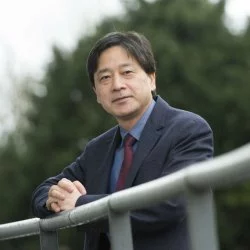 Professor Yaochu Jin Bio: To be added. |
| 03:55-04:00pm | Break |
| 04:00-05:15pm | PhD Forum, Chaired by Professor Yaochu Jin, University of Surrey, UK; Bielefeld University, Germany |
| 04:00-04:15pm | The Impact of Vision-Based Equipment Usage Detection on Building Energy Demand Estimation Shuangyu Wei, Nottingham University, UK show more/less
Abstract: To be added. Shuangyu Wei Bio: To be added. |
| 04:15-04:30pm | Region-Object Relation-Aware Captioning via Transformer Zhuang Shao, University of Warwick, UK show more/less
Abstract: To be added.  Zhuang Shao Bio: To be added. |
| 04:30-04:45pm | Identification of Biomarkers Based on Quantity and Knowledge Integrated Multilayer Networks Mengyuan Wang, Ulster University, UK show more/less
Abstract: To be added.  Mengyuan Wang Bio: To be added. |
| 04:45-05:00pm | A Brief Introduction to Indoor SLAM Bingxin Zi, Ulster University, UK show more/less
Abstract: To be added.  Bingxin Zi Bio: To be added. |
| 05:00-05:15pm | Ego-Graph Replay Based Continual Learning for Misinformation Engagement Prediction Hongbo Bo, Bristol University, UK show more/less
Abstract: To be added.  Hongbo Bo Bio: To be added. |
ORGANISING COMMITTEE
- Professor Yaochu Jin (金耀初教授), University of Surrey, UK; Bielefeld University, Germany
- Professor Huiru (Jane) Zheng (郑慧如教授), Ulster University, UK
